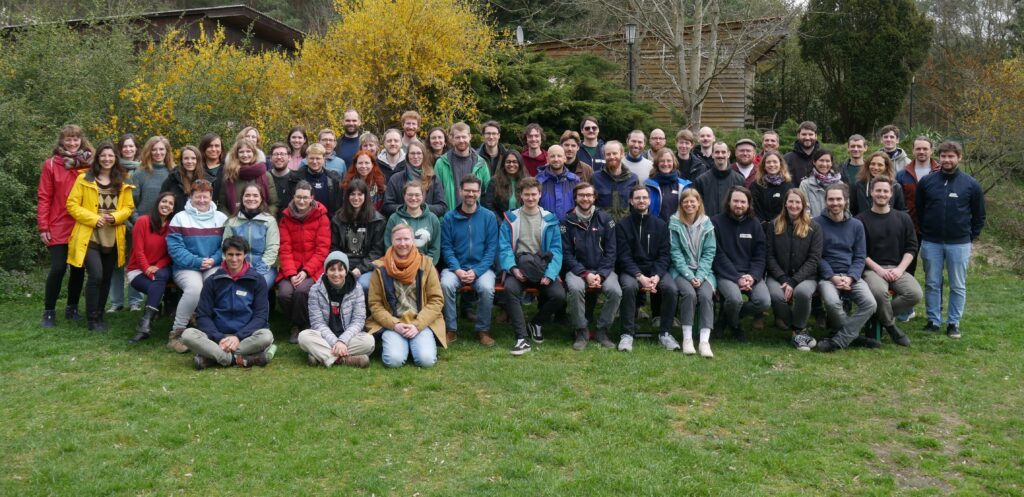
Identity
We are committed to the philosophy of our founder Reiner Lemoine. His vision was of a livable future for all people, and with our work we aim to contribute to a successful Energy Transition. The Energy Transition shall be shaped and funded through the participation of all citizens and thus contribute to a fairer society. Our research results and findings are validated under real-world conditions wherever possible and made available to the public. We work self-critically, transparently, and are committed to scientific research ethics. In our research practice, participatory collaboration and a trustful and respectful work environment is important to us.
We are particularly pleased that in addition to our research we were able to create a positive work environment at the Reiner Lemoine Institute. Men and women work together as equals on all hierarchical levels and many decisions are made collectively. We work for the energy transition with scientific methods – but also out of personal conviction.
A charter for our values
We have jointly defined our values and goals and summarized them in a policy document, the RLI Charter. We have also drawn up a Gender Equality Plan to promote equality and diversity within our institute.
Safeguarding good scientific practice
The RLI implements the Code of Conduct “Guidelines for Safeguarding Good Scientific Practice” of the German Research Foundation (DFG). To this end, RLI has concluded a cooperation agreement with HTW Berlin. Our research work is therefore carried out on the basis of the Statutes for Safeguarding Good Scientific Practice and Dealing with Scientific Misconduct at HTW Berlin [PDF] in its latest version.
Sarah Berendes and Timo Beyer are currently available as ombudspersons for good scientific practice at RLI .
The supra-regional “Ombuds Committee for Research Integrity in Germany” (OWID) is another independent body that is available for advice and support on issues of good scientific practice and its violation by scientific dishonesty.
Equality Platform for the Energy Sector of the European Commission
In November 2024, the RLI joined the Equality Platform for the Energy Sector, an initiative of the European Commission to promote diversity and inclusion in the energy sector. The Equality Platform serves as a forum for discussing equality issues and allows members to share experiences and highlight best practice. Its main objective is to strengthen the commitment to equality in all its dimensions by promoting workplaces that are more diverse and inclusive.
Diversity Charter
RLI also signed the Diversity Charter in May 2021 and is thus committed to the following principles
- An organisational culture characterised by mutual respect and appreciation of each and every individual
- Ensuring that HR processes do justice to the diverse skills and talents of all employees
- recognising the diversity of society within and outside the organisation and valuing its potential
- Make the implementation of the charter a topic of internal and external dialogue
- Inform employees about the topic of diversity and involve them in the process
The Diversity Charter is an employer initiative to promote diversity in companies and institutions. More than 3,000 companies and institutions have already signed the Diversity Charter.
Open Science
Wherever possible, we follow the principles of open science and try to make the majority of our scientific work accessible. This forms the technical and legal basis for scientific reproducibility and genuine participation in the energy system transformation.
The open-source approach makes our work more efficient by reducing parallel efforts. It also facilitates collaboration and helps to use public funds responsibly. In practice, we rely on publishing our programmed models and calculated data under open licenses, creating documentation and extensive metadata, using open-source tools, and actively sharing knowledge and experience. We have already successfully applied open and collaborative energy system research in a number of research projects.
You can find our open-source software and the corresponding communities here: